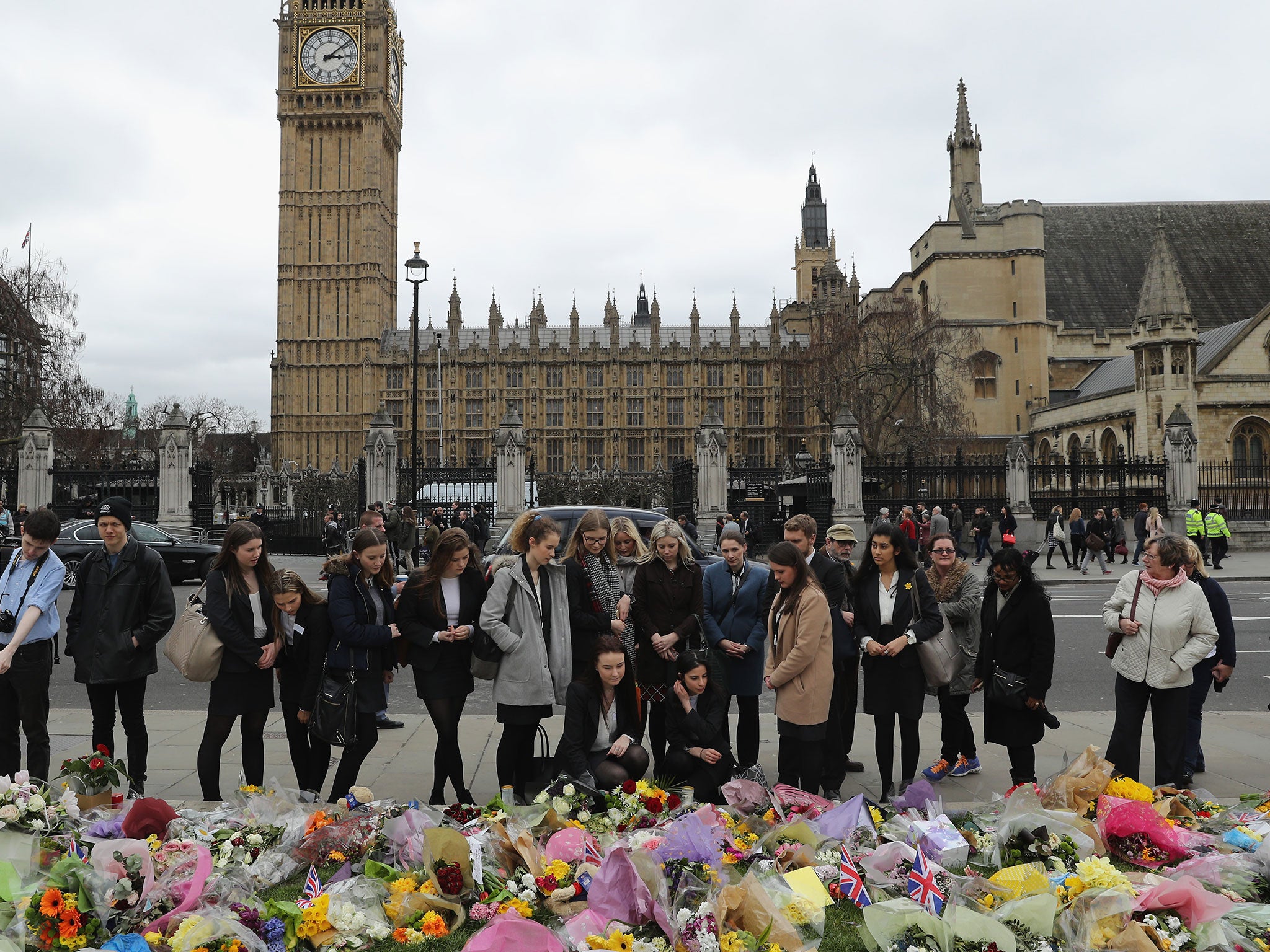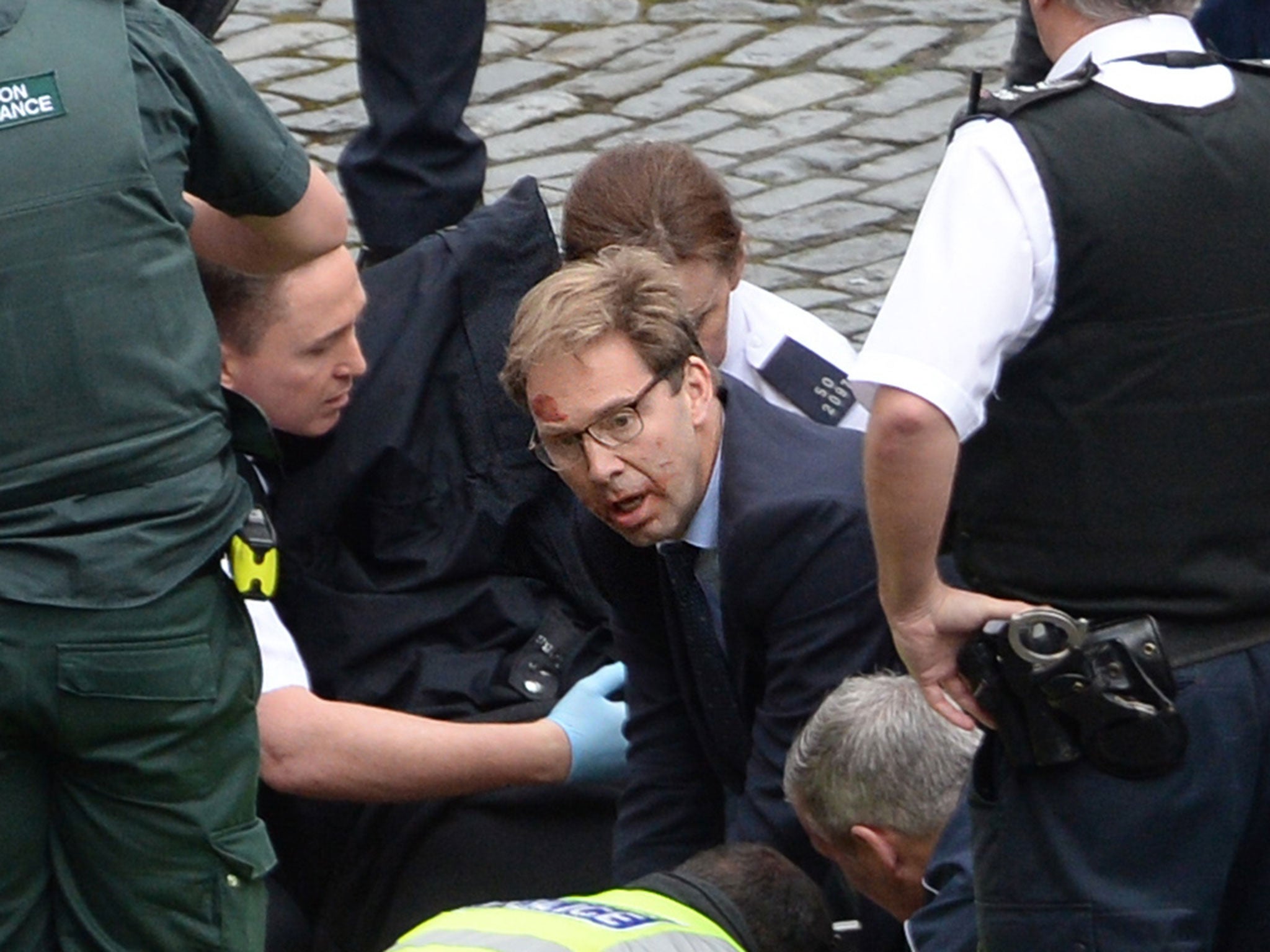Westminster attack inquests: Khalid Masood's mother 'feared he would kill' because of extreme violence and crime
Terrorist converted to Islam in prison and told his children he was 'going to die fighting for God'
The Westminster attacker’s mother feared he would become a killer when he was just a teenager, an inquest into his victims’ deaths has heard.
Police told the Old Bailey in London of Khalid Masood’s history of domestic abuse, crime and extreme violence, which saw him jailed twice and convert to Islam while in prison.
The 52-year-old had been known to the security services for his Islamist connections since 2004 but was not considered an imminent threat when he murdered five victims in March 2017.
Masood was shot dead by police after ploughing a rented car into Kurt Cochran, 54, Leslie Rhodes, 75, Aysha Frade, 44, and Andreea Cristea, 31, on Westminster Bridge and then stabbing PC Keith Palmer to death outside the Houses of Parliament.
Police believe he may have considered using gas canisters to cause an explosion during the impact, after telling children he was “going to die fighting for God” weeks before the atrocity.
Masood, who was formerly named Adrian Russell Ajao, first got into trouble with police when he was just 14 years old and living in Tunbridge Wells with his mother, stepfather and two stepbrothers.
Detective Chief Inspector Dan Brown told the inquests: “His mother suggested he exhibited normal boisterous behaviour, but his two brothers suggested he was a violent, disruptive person, who would not back down from a disagreement.”

Masood’s mother, Janet Ajao, told police he would go to pubs and clubs looking for a fight as an older teenager.
“She also described him as an angry person,” DCI Brown added. “She was worried he would kill someone through fighting.”
Masood was convicted seven times between 1983 and 2003 for offences ranging from criminal damage to possession of an offensive weapon, threatening behaviour, actual bodily harm, assault on police and unlawful wounding.
A criminal records check carried out for a job application in 2009 said Masood had “a violent temper” and that police incidents dating back to 1998 had got progressively more serious.
In 1998 he punched a woman in the face after she said she did not like his attitude, and after moving to Eastbourne was charged with actual bodily harm on a girlfriend, who cannot be named for legal reasons, and intimidating a witness.
Investigators believe Masood converted to Islam while serving a two-year prison sentence imposed in July 2000 for attacking a man with a knife as he was ejected from a pub.
Masood began reading the Quran while jailed at HMP Lewes, Wayland and Ford, but showed no sign of extremist beliefs that was detected at the time, the inquests heard. His relationship with Jane Harvey, with whom he had two children, ended at this time amid “ongoing domestic abuse”.
In 2002, he hit a man over the head with a glass and cut another man’s face with a knife at a pub. He was arrested but the case was discontinued because the witnesses would not help investigators following suspected intimidation.
In the same year it was alleged that he hit someone with a cosh during a robbery and in March 2003, he beat a man with a baton so badly the victim was left with a dislocated shoulder, broken collarbone and extensive bruising.
Just two months later, Masood plunged a carving knife through the nose of Daniel Smith after being accused of being an undercover police officer in May 2003.
In what was described as a “horrific incident”, the Old Bailey heard the blade went through the palate of his mouth, through the tongue and into his jaw with such force the last inch of the blade broke off.
Masood was acquitted of attempted murder, wounding with intent and having a bladed weapon after claiming self-defence and released from HMP Lewes, where he had been held on remand.
The inquest heard he credited his acquittal, as well as the survival of his eldest daughter in a later serious car accident, as the “miracles” that reinforced his Muslim faith.
Police records detailed Masood’s involvement in drug dealing, racketeering and enforcement, but no further criminal offences were recorded after he was released from his second prison sentence in 2003.
In 2004 he moved to Crawley to train to teach English as a foreign language, and met Farzana Malik, who he married within a matter of weeks. In her words the union was “a disaster” and the pair parted ways after a few months.
In November 2005, he began a year’s contract teaching English in Saudi Arabia, as his connections to terror suspects and members of Anjem Choudary’s al-Muhajiroun network drew the attention of security services.
But Masood never crossed the threshold for a high-priority investigation and was able to return to the UK.
In 2007 he married Rohey Hydara and moved to east London, where his wife recalled him meeting a friend who had been convicted of terror offences in a park.
From April 2008, he returned to work in Saudi Arabia for a year, which he described as “a utopia”.
According to his CV, from October 2009 to June 2012 he worked teaching English in Luton. At this time, he also started working out and using steroids.
DCI Brown told the inquest: “Ms Hydara told us that he had anger issues. He would get very angry and controlling and they did have periods of separation as a result of these anger problems.”
In June 2012, Masood moved to Birmingham to run his own business teaching English and described himself as a “good Muslim” on an Islamic dating site.

“As a typical non-believer, I drank in pubs at the weekend but alcohol did not agree with me and sometimes I got into fights,” his profile said.
He also complained about his wife wearing “tight jeans”, having her hair exposed and allowing their children to celebrate their birthdays.
In 2014, the inquest heard he used “heavy emotional persuasion” to get his second eldest daughter to live with him in Birmingham and convert to Islam, but she chose to return home.
Masood was offered another job in Saudi Arabia in May 2016 but later rejected, and was “struggling with money, in debt” and trying to move to a predominantly Muslim country in the run-up to the attack.
In the preceding weeks, he told his younger children he had been having prophetic dreams during video calls.
DCI Brown said: “He told them that he was going to die fighting for God.”
Internet searchers for Birmingham Calor Gas Centre suggested it was “at least possible” that he had planned to use gas as a weapon, the officer added.
Masood drove from Birmingham to Wales to visit his mother and stepfather on 16 March after picking up the vehicle he used to carry out the attack in what police believe was a “goodbye visit”.
DCI Brown told the court: “As he was leaving the house on 17 March he turned over his shoulder and said, ‘they will say I’m a terrorist. I’m not.”’
The inquests into the deaths of Masood’s victims continue, and a hearing to establish the circumstances of his death will be held at a later date.
Additional reporting by PA

